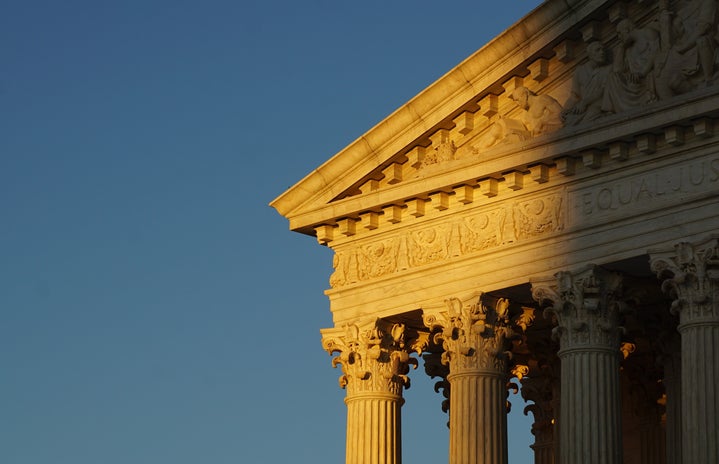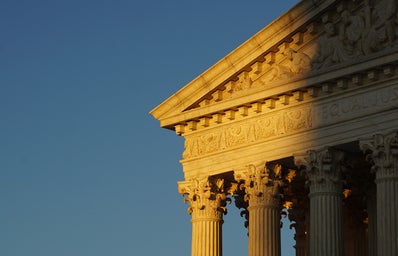It is difficult not to look back on the past few years and think of what unprecedented, wildly out of the ordinary events and circumstances this country has endured. It is no surprise then that in the summer of 2022, the Supreme Court offered nothing short of ground breaking changes to the American legal system and the rights of American people.
The decision in Dobbs v. Jackson Women’s Health Organization has certainly stolen the spotlight in its erasure of the constitutional right to abortion, but the Supreme Court also drastically changed the landscape of the American legal system through several other cases.
In West Virginia v. EPA, the Court curtailed the agency’s ability to regulate carbon emissions by mandating that when an agency develops a new or wide reaching policy, it is essentially invalid unless specifically authorized by Congress. In other words, the Court tied the hands of the EPA in addressing ever-worsening climate change. In New York State Rifle & Pistol Association v. Bruen, the Supreme Court struck down a concealed carry law which required individuals wishing to publicly carry a gun to show a special need to do so. Even as Justice Clarence Thomas acknowledged that the “regulatory challenges posed by firearms today are not always the same as those that preoccupied the Founders in 1791,” the Court ruled that firearms regulations today must be analogous to historical tradition, dating back to a time of muskets and rifles rather than semi automatic firearms. This appeal to history was also made in Kennedy v. Bremerton School District, in which the court upheld the right of a public high school football coach to pray on the fifty yard line following games. The Court said that “the test now should be the history, text and traditions of the Constitution,” once again centering the settlement of modern issues on the standards of more than a century ago. These decisions sting even more in the wake rising global temperatures, the steady flow of mass shootings, and the competition between state legislatures to pass the most draconian abortion laws possible.
The Supreme Court decisions of this summer remind us that democracy is fragile. This is a lesson that we seem to be learning over and over again in the past few years but it stands true as we inch towards the end of 2022. While the Supreme Court has always been a political institution, this court “is involved in many more issues and a wider range of issues than it has been,” and it has become increasingly out of step with the country. According to a recent Marquette Law School poll, the disapproval rating of the Supreme Court is 61%, up from just 39% one year ago. This is not necessarily politics as normal, nor is it just the grumblings of an unsatisfied minority. Our democracy is a fragile thing which has been shaken profoundly in recent years. Even so, the high disapproval ratings of the Supreme Court offer a glimpse of how we can move forward as people continue to organize, vote, and advocate for progress. We shape this democracy and can still have a hand in fixing this, little by little.
Sources:
https://www.npr.org/2022/07/05/1109883082/the-u-s-supreme-court-term-in-review
https://www.npr.org/2022/06/30/1103595898/supreme-court-epa-climate-change
https://www.cnn.com/2022/07/20/politics/supreme-court-job-approval-marquette-poll/index.html


